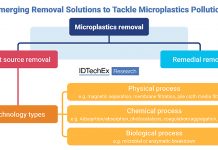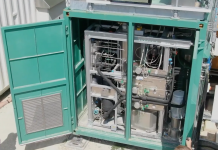The chemical sector is responsible for 5% of global greenhouse gas emissions, emitting around 2 billion metric tons of CO2 per year. In today’s climate emergency, where the planet is on track for a catastrophic 3.1°C increase in temperature since pre-industrial times, the chemical sector has a critical role to play here – needing to take rapid and meaningful action in accelerating its decarbonisation efforts.
Central to this issue is the industry’s vast consumption of energy, being the second largest industrial energy consumer and the third largest direct emitter of CO2.
Whilst this energy-intensive industry has reduced its consumption by 48% since 1990 (according to CEFIC), companies, suppliers and manufacturers need to take a considered look at the methods they’re employing, to ensure efforts are creating genuine impact in helping them reach their net zero targets at pace.
Challenges in carbon-free energy procurement
One of the difficulties many companies, suppliers and manufacturers face is procuring clean energy that genuinely aligns with their operational needs and emissions targets. Central to this issue is the absence of real-time data, which makes it difficult to match their electricity consumption with renewable generation on an hourly basis.
Green energy certificates (known as REGOs in the UK and GOs in the EU) have provided companies with a way to demonstrate their support for renewable energy and a commitment to cover their electricity consumption with renewable sources. However, many companies still procure certificates on an annual or quarterly basis, often selecting bulk quantities of the cheapest options available, regardless of alignment with their actual consumption patterns or locations.
Ultimately, these methods are not an accurate representation of how the energy market works, leading to inaccuracies and even the reputational risk of greenwashing. This approach is therefore no longer adequate, and we need to see companies adopting more accurate and transparent solutions, looking to procure energy certificates that truly align with their consumption. Fundamentally, this will enable them to be more impactful in achieving their net zero targets.
The solution – 24/7 carbon-free electricity (CFE)
24/7 carbon-free energy (CFE) enables companies, suppliers and manufacturers to align clean energy portfolios with energy use with up to hourly precision. This allows them to buy certificates on an hourly basis and match a given volume of clean electricity demand with an equal volume of clean electricity generation — at the exact time the electricity was actually used.
With 24/7 CFE, businesses can ensure that they are genuinely powered by clean energy and are truly moving towards their environmental goals – without needing to deal with the guesswork and uncertainties linked to annual procurement.
This doesn’t imply that their consumption must be correlated to clean energy certificates every hour of every day (although that is the ultimate goal). However, it means that they can be confident that their procurement methods have an actual impact.
The transition to 24/7 CFE also presents a significant opportunity for companies to save costs. By moving away from bulk purchases of green energy certificates, it will enable them to not over procure. Plus, 24/7 involves more energy-efficient equipment and the potential to attract investment – with investors increasingly adopting ESG criteria and channelling capital to sustainable companies.
The benefits for companies, suppliers and manufacturers
Moving to transparent and efficient 24/7 CFE will not only help companies succeed in meeting their net zero targets, but it will help strengthen and futureproof their business.
The pressure from stakeholders to make companies sustainable is rapidly mounting on all sides, and therefore there are huge financial and reputational advantages in transitioning to 24/7 CFE.
For those who are already measuring and reducing their emissions, the wider business advantages to this are evident. According to a report from Boston Consulting Group and CO2 AI, 25% of businesses reported annual decarbonisation benefits either equal to or more than 7% of their revenues for an average net benefit of $200m a year, attributed to measures such as improvements in efficiency, waste reduction and the use of renewable electricity.
Furthermore, from 2025 large companies in the EU will be obliged to report the carbon footprint of their entire value chain. And under the EU’s Corporate Sustainability Reporting Directive, they will need to disclose specific carbon data that hourly matched renewable energy can directly support, creating a considerable advantage for those already adopting 24/7 CFE.
The chemical industry must act now
Decarbonisation is the issue of our time, and the chemical industry must now work even harder to achieve its net zero goals. To do this, it’s essential that companies, suppliers and manufacturers accelerate their decarbonisation journey, by tackling their scope 1, 2 and 3 emissions and achieve real, rapid and lasting change.
By committing to 24/7 CFE, the sector can be at the forefront of prioritising environmental stewardship and social responsibility, whilst benefitting their bottom line through saving costs and attracting customers and investors. We’re fast approaching this tipping point where sustainability will be considered a baseline requirement, and the chemical industry needs to invest in 24/7 CFE now to reap the rewards.
renewabl.com









